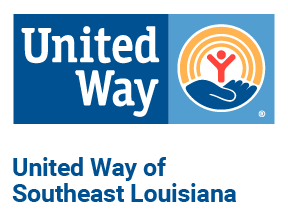Operation Restoration is on a mission to support women and girls impacted by incarceration to recognize their full potential, restore their lives, and discover new possibilities.
From a College in Prison program, to meeting basic food, shelter, and child care needs, to laser-focused advocacy, OR’s work seeks to eliminate barriers to higher education and bring economic security, long-term stability, and civic participation to women with criminal convictions and their families.
OR team members Syrita Steib-Martin (Executive Director), Annie Freitas (Policy Director), Dolfinette Martin (Operations Manager), and Montrell Carmouche (Mentor Coordinator), stopped by the LIVE UNITED Radio studio to share more on OR’s work. Read excerpts from the conversation below and listen to the full episode here.
In just a few short years, Operation Restoration has seen significant growth and accomplishments in both advocacy and providing direct services. Where do you think this speed has come from?
“We believe in supporting a person fully…we know at Operation Restoration that they (advocacy and direct services) have to be hand in hand. In order for someone to be a great advocate, they can’t need any direct services. And in order for a person to learn how to be a great advocate, they can’t be worrying about food and clothing and shelter…”
“Supporting individuals to tell their own story I feel like allows the advocacy part to really speed up. Once you bring back the humanistic side of the advocacy and you start talking about people and not about situations and things – but putting people first – people genuinely want to help people.” - Syrita
What are some of the specific challenges women and children face through reentry?
“I was recently released myself after 19 years and 8 months, so I know what the challenge is like…For the most part, the basic need is the hardest part of starting over. Everybody pays attention to the big things, but nobody pays attention to the little things. I didn’t know how to catch the RTA after 20 years, New Orleans was no longer home for me.”
“I was given an opportunity, but my need was met from beginning to the end. My first tooth brush I got was from there (OR), the clothes the need to go to my job setting I got from there…. They showed up at the halfway house to help me, pick me up, and never drop me back off.” – Montrell
How is Operation Restoration exposing people, at the earliest opportunity, to education to make that full transformation?
“While education is a big part of our focus and work, it’s all of the things that you need in order to take advantage of the education. I always talk about how if you give someone an opportunity, but you don’t remove the barriers that person may have to take advantage of the opportunity, then you haven’t given them an opportunity at all. Someone can’t partake in education if they’re worried about housing or child care or have food insecurity issues. So we make sure that we address all of those needs…”
“My motivation to education always comes back to Dolfinette…she said that she graduated from college at 42 when she learned at 40 that she could go to college…To meet someone who did not think that education was their right or they had they had the access to education, it just floored me…nobody should feel that like at 40.” – Syrita
How is Operation Restoration using advocacy to increase access to education for women with criminal convictions?
“In 2017, we worked with legislators to write and pass the first bill to remove criminal history questions off of college applications….When we passed that legislation in Louisiana, we kind of started a fire and inspired a lot of other people to do the same…Next year, it’s lining up to 15-20 states, we’re working with advocates on the ground to pass that legislation, and working on federal bills as well. We started the Unlock Higher Ed campaign to coalesce all the groups that work on educational access and move forward to removing those barriers.” - Annie
